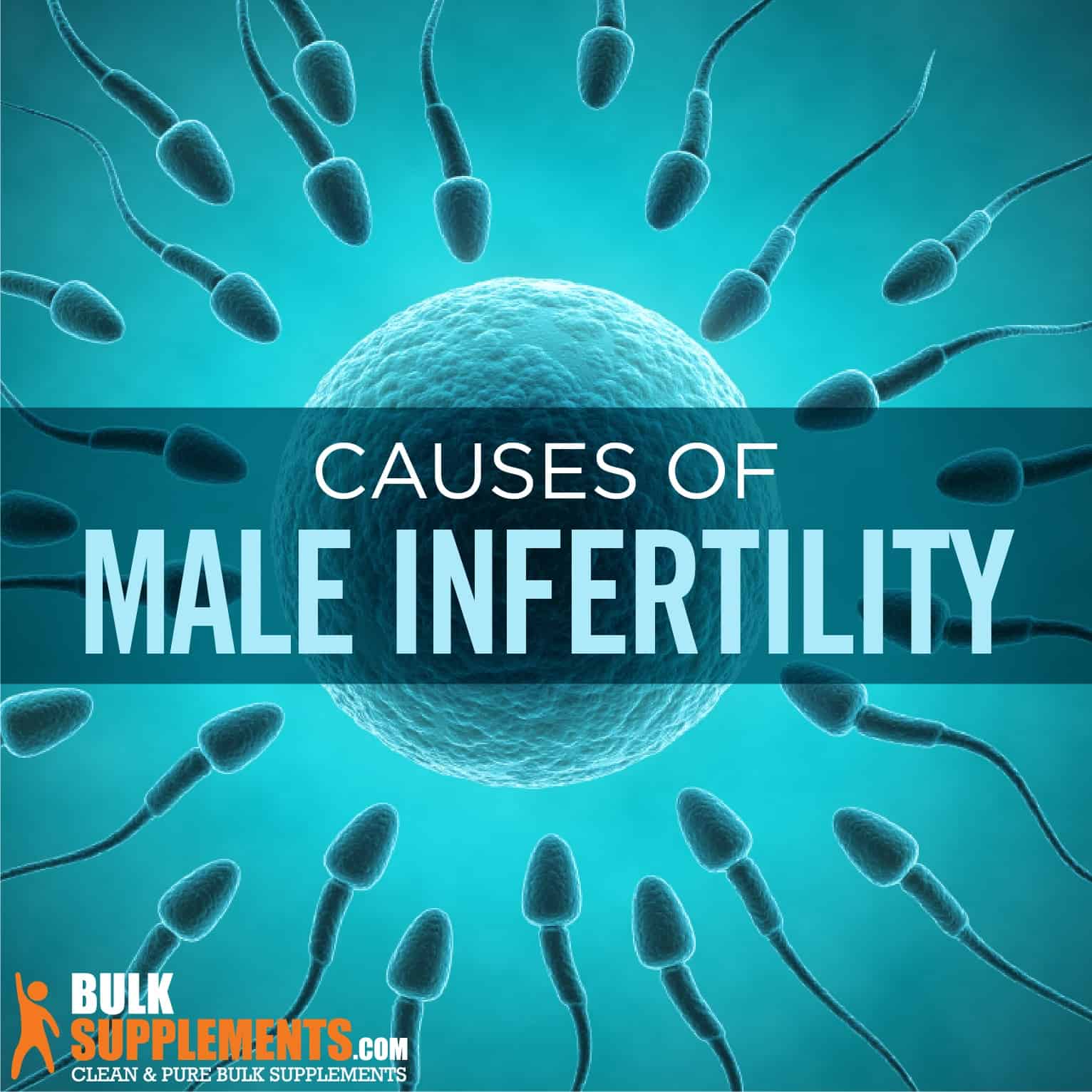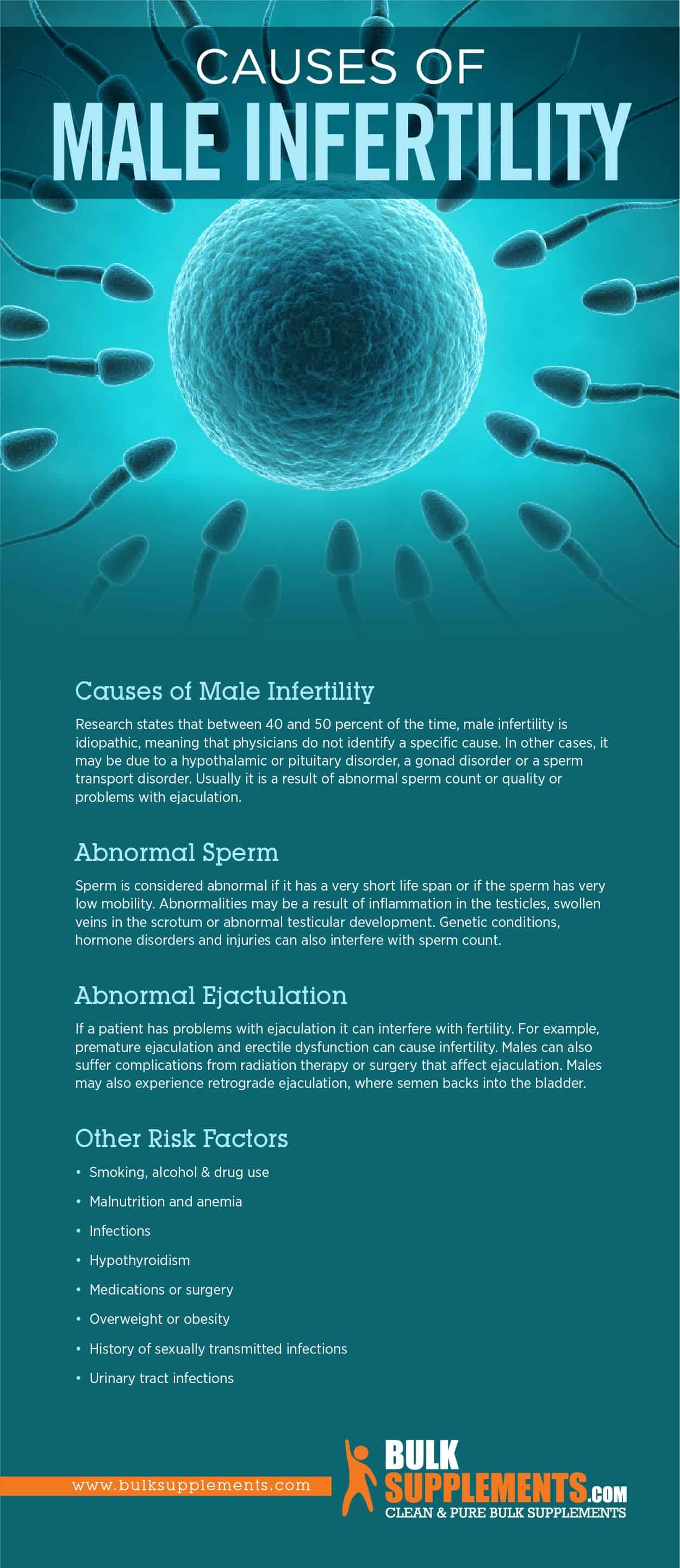Male Infertility: Signs, Causes & Treatment
by James Denlinger Digital Marketing Strategist
What is Male Infertility?
It can be devastating for a patient to discover that they are infertile. Research states that infertility affects one in every six couples and that male infertility factors are involved in about 30 percent of cases, paired with other factors. But about twenty percent of cases result from male infertility alone.
There are four main causes of male infertility. Males may suffer from a hypothalamic or pituitary disorder, a gonad disorder, or sperm transport disorder. However, in 40 to 50 percent of cases it is idiopathic.
Signs of Male Infertility
In some cases, there are no signs or symptoms of male infertility. However, in other cases it may be caused by a set of common signs that patients may not have considered, including:
- Pain & swelling in the testicles
- Changes in sexual desire
- Erectile dysfunction
- Sperm health
- Testicle health
However, these signs are not specific and they may be linked to a number of other factors. For example, pain and swelling in the testicles may be a result of an infection or hernia. A male patient may experience changes in sexual desire because of psychological factors, such as anxiety, stress or depression.
Causes of Male Infertility
Research states that between 40 and 50 percent of the time, male infertility is idiopathic, meaning that physicians do not identify a specific cause. In other cases, it may be due to a hypothalamic or pituitary disorder, a gonad disorder or a sperm transport disorder. Usually it is a result of abnormal sperm count or quality or problems with ejaculation.
Abnormal Sperm
Sperm is considered abnormal if it has a very short life span or if the sperm has very low mobility. Abnormalities may be a result of inflammation in the testicles, swollen veins in the scrotum or abnormal testicular development. Genetic conditions, hormone disorders and injuries can also interfere with sperm count.
Abnormal Ejactulation
If a patient has problems with ejaculation it can interfere with fertility. For example, premature ejaculation and erectile dysfunction can cause infertility. Males can also suffer complications from radiation therapy or surgery that affect ejaculation. Males may also experience retrograde ejaculation, where semen backs into the bladder.
Other Risk Factors
- Smoking, alcohol & drug use
- Malnutrition and anemia
- Infections
- Hypothyroidism
- Medications or surgery
- Overweight or obesity
- History of sexually transmitted infections
- Urinary tract infections

Diagnosing Male Infertility
To diagnose male infertility, a doctor will ask the patient about their lifestyle and medical history to identify or rule out any risk factors that may contribute. There are several different tests to make the diagnosis, such as a semen analysis, a blood test or a fluid culture to check for infections. The doctor may also perform a physical examination on the penis, scrotum and prostate.
However, the most important test is the sperm analysis. Physicians look for sperm volume and sperm count. A normal sperm volume is 2 mm and 20 to 30 million per mm is a normal sperm count range. Doctors also look at the size and shape of the sperm, which affects its ability to fertilize an egg. Sperm tests also look for sperm movement and how many active cells there are.
Male Infertility Treatment
Physicians may be able to treat most cases of infertility with medication or surgical procedures. But ultimately treatment depends on the cause. For example, if the patient has an infection, antibiotics may help and if they have a hormone imbalance, hormone supplements may regulate them. Treatment options may be surgical or non-surgical.
Medication
Medications aim to increase testosterone and decrease estradiol, which is a type of estrogen. The patient may take oral estrogen receptor blockers to increase hormone and sperm production. Doctors may also prescribe injectable human chorionic gonadotropin (hCG) to regulate hormone levels. Other medication options include arimidex and clomiphene.
Surgical Treatments
Varicocelectomy is a common procedure to repair damaged veins in the scrotum. Repairing these veins can improve sperm structure and mobility. Surgeons may also perform procedures to correct obstructions that cause infertility, such as a vasectomy reversal (vasovasostomy) or epididymovasostomy. Vasovasostomy reverses a previous vasectomy to correct sperm blockage, so that it can pass during ejaculation. An epididymovasostomy clears blockage in the epididymis from previous infections, injuries or vasectomies.
Assisted Reproductive Techniques (ARTs)
If infertility treatment isn’t available or if it fails, assisted reproductive techniques (ARTs) can help a couple conceive. Depending on the cause of the patient’s infertility, a doctor may recommend:
In Vitro Fertilization (IVF)
IVF combines the male sperm with an over-stimulated female egg in a lab. Over-stimulating the egg with drugs produces multiple healthy eggs. The eggs grow for about three to five days and then the surgeons put the fertilized egg back into the female’s uterus. This procedure can help male infertility if the patient has a severely low sperm count.
Intrauterine Insemination (IUI)
This procedure helps address low sperm count, problems with the sperm’s movement and retrograde ejaculation. The doctor inseminates the female through the uterus, injecting the sperm directly into the uterus.
Intracytoplasmic Sperm Injection (ICSI)
ICSI is similar to in-vitro fertilization. Physicians use this option if the patient has very low semen quality or testicular failure that blocks sperm from the semen. The doctor uses a small needle to inject one sperm into an egg and then puts it back into the uterus after it’s fertilized. The physician may also surgically extract sperm from the testicles or epididymis.
Lifestyle Changes
In some cases, lifestyle and environmental factors may interfere with sperm production and infertility. Making lifestyle changes may help boost fertility and improve overall health at the same time.
Eat Right
Studies suggest that nutrition can affect sperm health. In fact, there are several different foods that research associates with sperm quality. For example, processed meat, trans fats, soy products, pesticides and high-fat dairy products may decrease sperm health. Stock up on fresh fruits and vegetables and cut down on meat products. A diet of fruits, vegetables, lean meats, grains and legumes may help improve sperm quality.
Get Moving
Researchers have not determined a specific link between sperm quality and physical fitness. However, exercise helps with weight management and there is evidence to support the connection between weight and male infertility. Moreover, exercise also helps relieve stress, which can also contribute to sperm quality. Research states that patients may improve sperm mobility and speed with moderate cardio, such as jogging.
Manage Stress
Several studies associate sperm quality and infertility with psychological stress. Acute stress may reduce testosterone pulsing, which affects sperm quality. Work, life events and social factors may cause patients stress that interfere with health.
Other Lifestyle Changes
Patients should also consider drinking only moderately or abstaining altogether because alcohol may reduce testosterone production. Smoking and using recreational drugs can also decrease sperm count and it may alter its structure, potentially causing deformities. Studies also state that body heat may also affect fertility and damage sperm. For example, hot tubs, fever and form-fitting underwear can interfere, specifically if the patient’s sperm count is already low. Patients should also talk to a physician about medications that may hinder sperm production.
Supplements for Male Fertility
Taking herbs or supplements may also improve sperm production and fertility. However, they are not an adequate medical treatment or prevention for male infertility or any other medical condition. Instead, supplements aim to improve overall health. Consult a doctor before taking any supplements.
L-Carnitine
L-carnitine is an antioxidant amino acid that may promote cardiovascular, cognitive and muscular health. Studies show that it can help with weight loss as well. It can also boost energy and athletic performance. Research studies also support its potential to improve fertility. As a dietary supplement, take L-carnitine base powder in 500 mg doses four times a day.
Zinc
Zinc contributes to immune, eye, bone and heart health. It can also help with high blood pressure and heal wounds. Zinc also helps regulate the male reproductive system. The recommended dosage for zinc gluconate powder is between 225 and 450 mg a day, or following a doctor’s recommendation.
Ashwagandha
Ashwagandha is a natural anti-inflammatory that people often use to address mental health symptoms and relieve bone and joint pain. It may also help repair damage from Alzheimer’s disease and Parkinson’s disease. Ashwagandha is also a natural way to promote sexual health, according to studies, partly because of its ability to relieve anxiety. Take 450 mg of ashwagandha extract powder one to three times per day, unless a doctor recommends a different dosage.
D-Aspartic Acid (DAA)
D-aspartic acid comes from aspartate, an amino acid that builds proteins. It can help boost physical and athletic performance, as well as improve testosterone production and fertility. As a dietary supplement, take 2,500 to 3,500 mg of D-aspartic acid (DAA) supplement once a day with your first meal.
Maca Root
Maca root mainly grows in Peru in the Andes Mountains. Research states that it helps improve sex drive and fertility. Ancient cultures used it for reproduction and studies find that it may be an effective tool. The recommended dosage for maca root extract is two capsules three times a day, unless a doctor recommends a different dosage.
Fenugreek
Fenugreek is an herb that grows in India, Egypt and Middle Eastern countries. Ancient cultures used it for medicinal purposes, such as digestive issues, wound healing and even inducing labor. Studies also show that it may successfully increase sex drive. As a dietary supplement, take 1,000 milligrams of fenugreek powder up to three times a day, or following a physician’s instructions.
The Bottom Line
Infertility affects about one in every six couples and up to thirty percent of cases are caused by male infertility. Usually it does not cause any physical symptoms, but there may be signs, including pain and swelling in the testicles, erectile dysfunction and changes in sexual desire. There are several different factors that can cause male infertility, such as sperm count and volume, injuries and infections. The patient may also have blockages that affect fertility. Lifestyle risk factors like alcohol, drugs, smoking, diet and weight. Studies also state that infertility may be related to stress, anxiety or depression.
In many cases, the patient can receive treatment. For example, there are medications and surgical operations to increase sperm count or clear blockages. There are also assisted reproductive techniques, such as IVF or IUI that may help a couple conceive. Patients may also boost fertility or sexual desire with natural supplements. They may improve overall health, but they are not a cure for male infertility or any other health condition. Consult a doctor for approval before starting a supplement regimen.
Sponsor Ads
Created on Mar 2nd 2020 22:43. Viewed 369 times.



